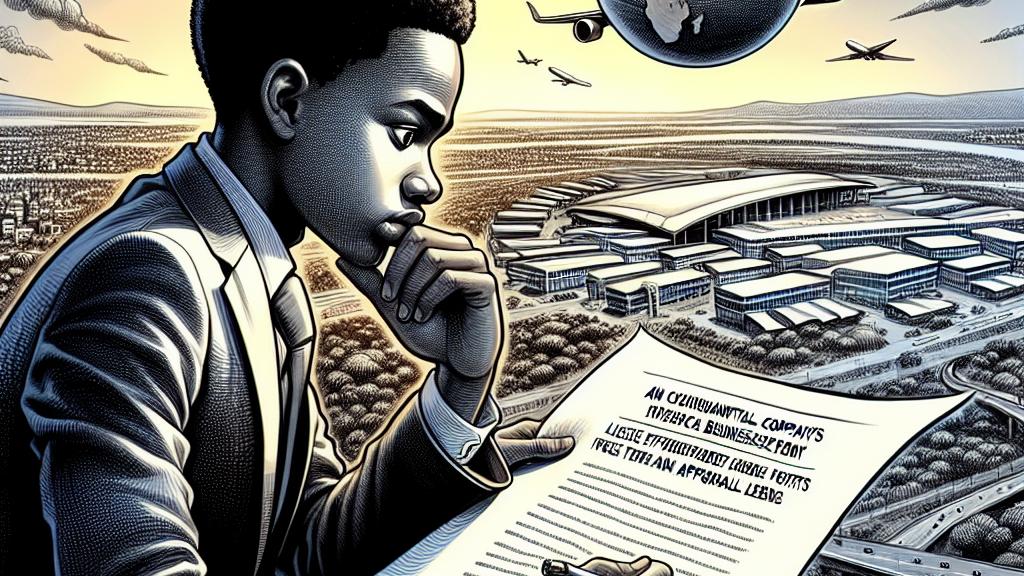The Heroic Whistleblower Exposing Airport Deal Secrets
Overview
- Kenyan student Nelson Amenya courageously reveals a controversial airport deal, risking his safety for transparency.
- Leaked documents uncover a staggering $2bn agreement for the Adani Group to manage JKIA over 30 years.
- Amenya's brave actions sparked widespread protests and ignited a demand for greater accountability in government.

Unveiling the Deal
In the dynamic landscape of Kenya, a brave young business student named Nelson Amenya discovered a troubling deal that would send shockwaves through the government. This was no ordinary agreement; it involved the powerful Adani Group, an influential Indian multinational with extensive operations around the globe. Their ambitious plan aimed to lease the Jomo Kenyatta International Airport (JKIA) for an astonishing 30 years, essentially holding the keys to the country's busiest airport. As Amenya scrutinized the leaked documents, his heart sank. Here was a deal where Kenya would invest a significant amount, yet the profits would likely benefit the foreign company, leaving ordinary Kenyans with little to gain. It felt, to him, like a betrayal on a monumental scale.
Taking a Stand
Picture this: you are in France, thousands of miles from home, grappling with an ethical dilemma that could change your country’s future. Amenya faced this turmoil, weighing his desire for safety against a profound sense of duty. His resolve sharpened as he considered the corrupt practices that had plagued his homeland. In a bold move, he chose to leak the documents on social media, and its impact was instant and explosive. Protests erupted among airport workers, their voices rising in unison, demanding the cancellation of the detrimental deal. Amenya felt a renewed sense of purpose; he wasn't just a bystander but a key player in the fight against corruption, driven by a vision of a better future for Kenya where integrity and transparency could thrive.
Ending Secrecy
The revelations from Amenya were like a spotlight illuminating the shadowy corners of government dealings, raising profound questions about accountability and trust. As Kenyans received the news, an important conversation ignited about whether their leaders had truly acted in their best interests. People were stunned to learn that established laws designed to protect them had been ignored. For instance, crucial public consultations that should accompany major agreements had been conspicuously absent, suggesting that officials were maneuvering without transparency or due diligence. Even after Amenya’s courageous disclosure, officials dismissed his claims as unfounded, but the tide was turning. Through his unwavering courage, Amenya emerged not just as a whistleblower but as a symbol of hope, inspiring a wave of activism for accountability and trustworthiness in governance—proof that one person's bravery can resonate deeply, rally a nation, and spur the demand for a brighter, more transparent future.

Loading...